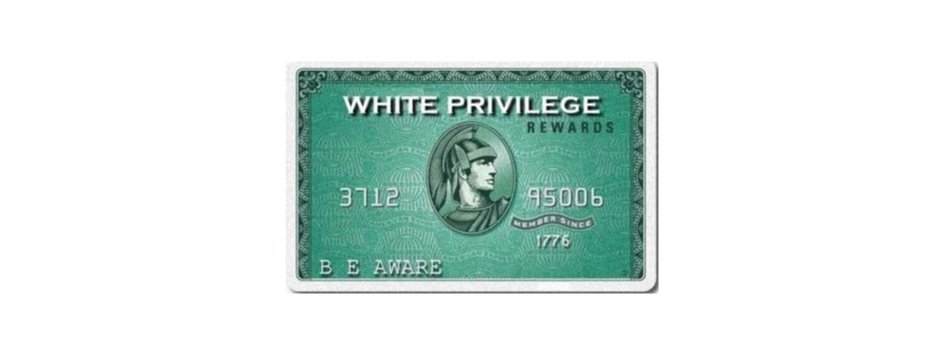I decided to share it on my Facebook wall, saying "The internalised racism and racial unawareness that Chinese people harbour towards dark-skinned people is plain appalling, immature and unbecoming."
Another Facebook friend responded to my post, saying "Fortunately, I've been blessed to be surrounded by friends and peers who do not see me for the colour I am, but rather by who I am. But yes, it does exist pretty rampantly here, where multiculturalism has been existence for more than 3 generations now. Pretty appalling that after all this time, and after being surrounded by every creed and race for so long, the colour of our skin still matters."
I replied "Yes, it is like the proverbial elephant in the room that Chinese people didn't want to acknowledge or talk about or fail to see because racial discrimination and privilege, such as Chinese privilege, are usually invisible to those who harbour them. It is thanks to mainly social media that racial issues and privilege issues can be openly made known and discussed - the more we Chinese people are made aware of our own internalised racism and racial unawareness, the more we can consciously work on our own unconscious and free ourselves from the discriminatory mindset that we harbour towards ourselves and others who look different from us."
She replied "I agree with you, but there's more to the racism here. Even within supposedly 'same' communities, there's racism bordering on ridiculousness. Like how the Malays with Arabic roots look at Malays with Boyanese roots differently. Like how North Indians look at South Indians differently. Essentially, it's a fair skinned superiority complex. Which is just plain nonsensical.
It's especially hilarious when people give you looks of horror when you admit to white people envy, but fair Asian complex is totally acceptable. Hah!"
I replied "Yes, colourism or shadism is just as bad as, if not worse than, racism because colourism is more subtle in some ways. Indeed, I realise that fair skinned superiority complex is not only propagated by Eurocentric propaganda of "white beauty" (which I blogged about here https://realrest.wordpress.com/.../our-true-beauty-and.../) but also passed down through generations in Asia about the "fair Asian complex". The society's preoccupation with fair skinned beauty has made it challenging for many with darker skin to develop a sense of self-worth and self-acceptance, and also not give in to the pressure to conform to the societal standard of "beauty" while the beauty industry is making billions marketing and selling skin lightening cream and so on, as you probably also know."
She replied "Yeah, very aware of the complex and the creams. But 1. I'm proud of the colour of my skin, and 2. I've been blessed with colour blind friends. So I guess I don't really feel it in my everyday dealings at work or play. But it would be very interesting for someone who does feel it to contribute to this discussion."
I replied "Good for you, and I am happy for you as well. I love the melanin in my own skin too, and I want more of it, as I love the sun. I have been educating myself on racial issues because I realise I am complicit in the oppression of darker skinned people without intending to by simply living unconsciously with my Chinese privilege, and Facebook pages such as The Love Life Of An Asian Guy as well as social activists and scholars such as Sangeetha Thanapal have been helpful in bringing about such awareness and giving voice to those who feel the racism and championing liberty and equality."
She replied "Well, I'm sure I speak for all brown people when I say thank you for taking the effort, and more importantly, thank you for seeing that there is a problem in the first place. For knowing and acknowledging is the first step to every resolution."
My personal thoughts: I'm brown too... well, a particular shade of brown, to be more precise.
For some reasons, I felt inadequate and I felt like a failure - then again, maybe it is encouraging to be acknowledged for the effort I am making, but I really shouldn't be taking the credit for doing something that I should be doing as a fellow human being. But of course, I can see it as a sign that I am on the right track in making a difference in people's lives, hopefully for the better.
I think it can be a lonely path, especially when many fellow Chinese appear to be living racially unaware, but I know I have to be true to myself. I may look foolish for not conforming to their norms and for getting myself involved in social justice, but I know enough of what it is like to be discriminated against, and I would rather bear the shame and ignominy together with the oppressed black and brown people, for I am also one of them.Ultimately, the more we talk about it and be aware of the racism and colourism within and around us, the better because it affects all of us. Within the Chinese community, for example, it is not uncommon for fairer skinned Chinese to look down on darker skinned Chinese. Racial and colourist stereotypes continue to be a stronghold in our mindsets based on the conditionings and programmings we have been receiving from our cultures, backgrounds, mass media and so on, and as much as I recognise a need to deconstruct the mindsets, I remind myself the true test is based on how I relate to and interact with people both in the online and offline worlds.


